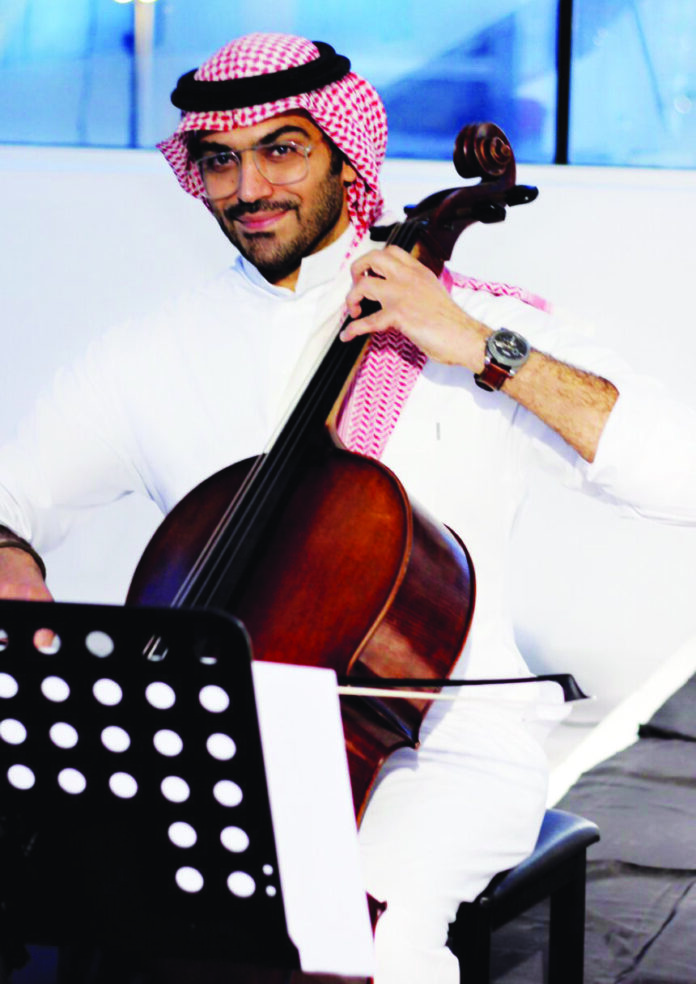JEDDAH: When Mohammed Al-Quthmi holds his cello and leans back with the instrument on his chest, he can feel there is something different about it. “The sound of it captures your attention. There is a depth in it, you cannot hear it or feel it with any other instruments.”
Al-Quthmi, 42, is one of a handful of Saudi cellists and part of the Kingdom’s blossoming classical musical scene.
He began playing the instrument in early 2019, practicing more frequently during the lockdown of 2020.
Saudi cellist Mohammed Al-Quthmi began playing the instrument in early 2019, practicing more frequently during the lockdown of 2020. (Supplied)
“The cello is not just a wooden instrument, it was my companion during the COVID-19 lockdown and our relation at that time got stronger,” Al-Quthmi told Arab News.
I myself enjoy playing classical and American pop songs, and I mostly enjoy improvisations in my own style. I play some Arabic songs but still need more time to master it as it’s not easy to play the Arabic music scales ‘Maqam’ on the cello.
Mohammed Al-Quthmi, Saudi cellist
His journey with music started in his college days. He would listen to the band Gipsy Kings and that inspired him to learn how to play the guitar.
After learning how to play the guitar, he learned the piano and the oud, with his last stop being the cello.
US cellist Adam Hurst was his main inspiration for picking up the instrument.
“He is the one who stole my senses once I heard his piece ‘Forsaken.’ At that time, I was in Dubai and went straight away to a music shop and got my first cello.”
He said that music had always been a part of Saudi culture, but had not received serious status prior to the social reforms of Saudi Vision 2030.
“It was a bit difficult to play publicly comparing to what we have today. Thanks to our beloved crown prince, things changed 360 degrees; I get to share the music I love with the public.”
Al-Quthmi said that professional musicians should practice three to four hours a day but, in his case as an amateur cellist, he usually played one to two hours a day. “I just play what I feel and what touches my heart,” he said.
The cello is Italian in origin, but it is played globally across continents.
“I myself enjoy playing classical and American pop songs, and I mostly enjoy improvisations in my own style. I play some Arabic songs but still need more time to master it as it’s not easy to play the Arabic music scales ‘Maqam’ on the cello.”
Al-Quthmi has taken part in a number of private musical gatherings, most recently at the Syrup music lounge in Riyadh where he played the piano and cello. “It was an amazing night. Hopefully I get to redo something like it soon,” he said.
The Kingdom has recently launched a number of music institutes and initiatives.
Last November, Yamaha Music School Riyadh opened as the first officially authorized music education facility in the Kingdom.
The Ministry of Culture’s Music Commission launched Bait Al-Oud (House of Oud) in January and this is due to open in 2023.

